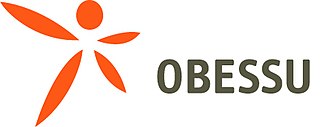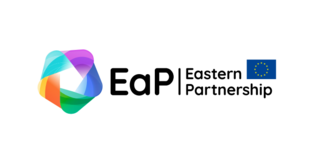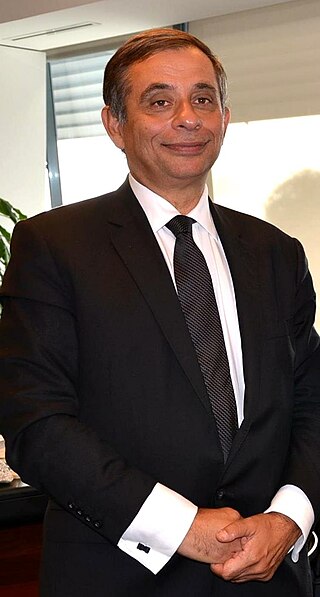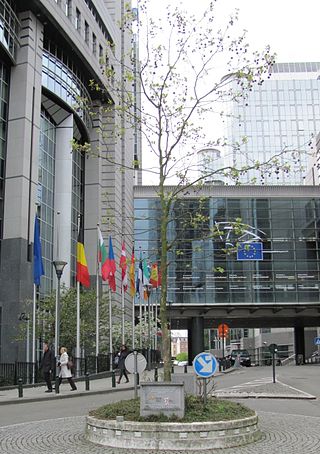Related Research Articles

The European Commission (EC) is part of the executive of the European Union (EU), together with the European Council. It operates as a cabinet government, with 27 members of the Commission headed by a President. It includes an administrative body of about 32,000 European civil servants. The Commission is divided into departments known as Directorates-General (DGs) that can be likened to departments or ministries each headed by a Director-General who is responsible to a Commissioner.

The European Economic and Social Committee (EESC) is a consultative body of the European Union (EU) established in 1958. It is an advisory assembly composed of "social partners", namely: employers, employees and representatives of various other interests. Its seat, which it shares with the Committee of the Regions, is the Jacques Delors building on Belliardstraat / Rue Belliard 99 in Brussels. Once known by the acronym "EcoSoc", the body is now referred to as the "EESC", to avoid confusions with the United Nations ECOSOC.

The European Court of Auditors is one of the seven institutions of the European Union (EU). It was established in 1975 in Luxembourg in order to improve EU financial management. It has 27 members supported by approximately 800 civil servants.
A supranational union is a type of international organization that is empowered to directly exercise some of the powers and functions otherwise reserved to states. A supranational organization involves a greater transfer of or limitation of state sovereignty than other kinds of international organizations.

Viviane Adélaïde Reding is a Luxembourgish politician and a former Member of the European Parliament (MEP) from Luxembourg. She is a member of the Christian Social People's Party, part of the European People's Party. She previously served as European Commissioner for Education and Culture from 1999 to 2004, European Commissioner for Information Society and Media from 2004 to 2010 and European Commissioner for Justice, Fundamental Rights and Citizenship from 2010 to 2014.

The Organising Bureau of European School Student Unions (OBESSU) is the umbrella organization of 32 national school student unions from 24 European countries. An interlocutor with the European Commission, European Parliament, Council of Europe and UNESCO, OBESSU is a full member of the Lifelong Learning Platform (LLLP) and the European Youth Forum (YFJ), and an associate member of the European Students' Union.

The European Trade Union Confederation (ETUC) is the major trade union organisation representing workers at the European level. In its role as a European social partner, the ETUC works both in a consulting role with the European Commission and negotiates agreements and work programmes with European employers. It coordinates the national and sectoral policies of its affiliates on social and economic matters, particularly in the framework of the EU institutional processes, including European economic governance and the EU Semester.

North Macedonia is a signatory to the European Convention on Human Rights and the U.N. Geneva Convention relating to the Status of Refugees and Convention against Torture, and the Constitution of North Macedonia guarantees basic human rights to all citizens.
Jane Morrice is a Northern Irish politician and journalist who helped architect the Good Friday Agreement. She is the former Deputy Speaker of the Northern Ireland Assembly, former Head of the European Commission Office in Northern Ireland and former reporter for BBC Belfast. Morrice was Vice President of the European Economic and Social Committee (EESC) from 2013-2015 and again from 2019 until 2020 when Brexit forced the United Kingdom out of the European Union. Morrice served two terms as Deputy Chief Commissioner of the Northern Ireland Equality Commission and was a prominent member of the Northern Ireland Women's Coalition until it ceased to exist in 2006.
European Union (EU) concepts, acronyms, and jargon are a terminology set that has developed as a form of shorthand, to quickly express a (formal) EU process, an (informal) institutional working practice, or an EU body, function or decision, and which is commonly understood among EU officials or external people who regularly deal with EU institutions.

The Eastern Partnership (EaP) is a joint initiative of the European Union, together with its member states, and six Eastern European countries. The EaP framework governs the EU's relationship with the post-Soviet states of Armenia, Azerbaijan, Belarus, Georgia, Moldova, and Ukraine. The EaP is intended to provide a forum for discussions regarding trade, economic strategy, travel agreements, and other issues between the EU and its Eastern European neighbours. It also aims at building a common area of shared values of democracy, prosperity, stability, and increased cooperation. The project was initiated by Poland and a subsequent proposal was prepared in co-operation with Sweden. It was presented by the foreign ministers of Poland and Sweden at the EU's General Affairs and External Relations Council in Brussels on 26 May 2008. The Eastern Partnership was inaugurated by the EU in Prague, Czech Republic on 7 May 2009.

The Union for the Mediterranean is an intergovernmental organization of 43 member states from Europe and the Mediterranean Basin: the 27 EU member states and 16 Mediterranean partner countries from North Africa, Western Asia and Southern Europe. It was founded on 13 July 2008 at the Paris Summit for the Mediterranean, with an aim of reinforcing the Euro-Mediterranean Partnership (Euromed) that was set up in 1995 as the Barcelona Process. Its general secretariat is located in Barcelona, Catalonia, Spain.
Design for All in the context of information and communications technology (ICT) is the conscious and systematic effort to proactively apply principles, methods and tools to promote universal design in computer-related technologies, including Internet-based technologies, thus avoiding the need for a posteriori adaptations, or specialised design.

The European Citizens' Initiative (ECI) is a European Union (EU) mechanism aimed at increasing direct democracy by enabling "EU citizens to participate directly in the development of EU policies", introduced with the Treaty of Lisbon in 2007. The initiative enables one million citizens of the European Union, who are nationals of at least seven member states, to call directly on the European Commission to propose a legal act in an area where the member states have conferred powers onto the EU level. This right to request the commission to initiate a legislative proposal puts citizens on the same footing as the European Parliament and the European Council, who enjoy this right according to Articles 225 and 241 TFEU, respectively. The commission holds the right of initiative in the EU. The first registered ECI, Fraternité 2020, was initiated on 9 May 2012, although the first submitted ECI was One Single Tariff.

The European Union (EU) has had permanent observer status at the United Nations (UN) since 1974, and has had enhanced participation rights since 2011. The EU itself does not have voting rights but it is represented alongside its 27 members, one of which, France, is a permanent member of the Security Council.

Henri Malosse is a French Politician and representative of the business world. he has been the 30th President of the European Economic and Social Committee (EESC).

Lobbying in the European Union, also referred to officially as European interest representation, is the activity of representatives of diverse interest groups or lobbies who attempt to influence the executive and legislative authorities of the European Union through public relations or public affairs work. The Treaty of Lisbon introduced a new dimension of lobbying at the European level that is different from most national lobbying. At the national level, lobbying is more a matter of personal and informal relations between the officials of national authorities, but lobbying at the European Union level is increasingly a part of the political decision-making process and thus part of the legislative process. 'European interest representation' is part of a new participatory democracy within the European Union. The first step towards specialised regulation of lobbying in the European Union was a Written Question tabled by Alman Metten, in 1989. In 1991, Marc Galle, Chairman of the Committee on the Rules of Procedure, the Verification of Credentials and Immunities, was appointed to submit proposals for a Code of conduct and a register of lobbyists. Today lobbying in the European Union is an integral and important part of decision-making in the EU. From year to year lobbying regulation in the EU is constantly improving and the number of lobbyists is increasing.
European Alternatives is a non-profit civil society organisation promoting democracy, equality and culture beyond the nation-state. The mission of the organisation is to promote a more democratic, equal and culturally open Europe. It does it by providing participatory spaces, helping to develop alternative means of political, social, and cultural participation and by connecting local activists and organisations spread around Europe.
The Conference on the Future of Europe was a proposal of the European Commission and the European Parliament, announced at the end of 2019, with the aim of looking at the medium- to long-term future of the EU and what reforms should be made to its policies and institutions. It is intended that the Conference should involve citizens, including a significant role for young people, civil society, and European institutions as equal partners and last for two years. It will be jointly organised by the European Parliament, the EU Council and the European Commission. On 19 April 2021, the multilingual digital platform of the Conference futureu.europa.eu was launched.
Marta Volodymyrivna Barandiy is a Ukrainian-born activist, lawyer, and founder of the Promote Ukraine organization.